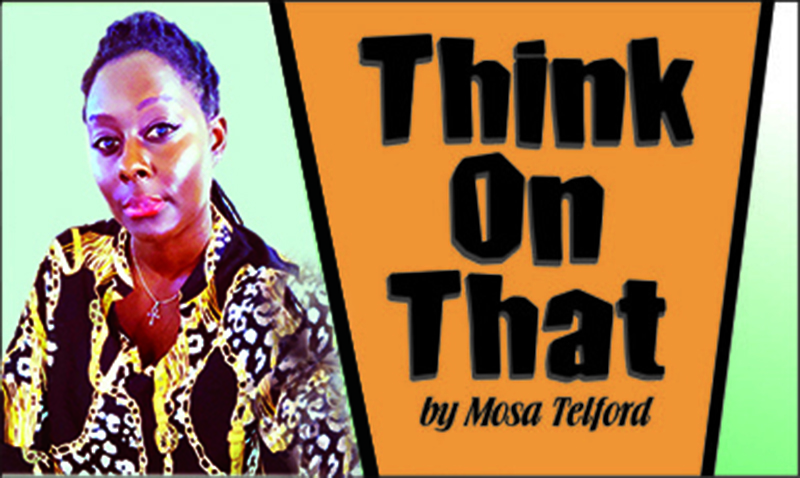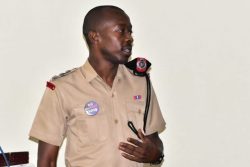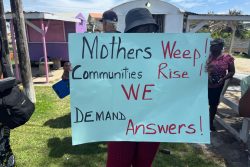Daily we are reminded of what a harsh society we live in. The recklessness, the insensitivity and the macabre, expose a society where coldness and lovelessness penetrate the core. While there are individual moments of peace, joy and affection as we direct our thoughts to bliss, embrace the hope there is and the care for our fellow humans, we cannot ignore that we have reached the nadir and keep digging to sink even further into the depths of depravity. The examples of our self-hate and the hate for others will never be exhausted and our collective healing might be a dream never realised.
There were two heartbreaking stories in the news recently that captured how we victim blame, shame, cultivate negativity and breed trouble while we believe this toxic society to be progressing.
Kenesha Vaughn was shot twelve times. There is no dispute about the manner of death or who shot her. She was killed in front of her child during a quarrel.
Men who hate women, women who hate women, defenders of the bruised egos of men who cannot control their emotions or their fists, defenders of the cultivated violence, defenders of evil, defenders of a corrupt system where the innocent are often judged harsher than the guilty are justifying this by claiming self-defence. Women who have been murdered by their spouses cannot dig themselves from their graves to speak. Their hands cannot point to the places on their bodies where it hurt, where it healed or to the wounds that killed them.
There are conversations being had about Vaughn’s culpability in her own death with no thought for the grieving family or the trauma of a child who witnessed their mother’s last moments by the hands of their father. We do everything to make sure the next generation inherits our trauma to keep the society on the course of collapse.
Footage of Vaughn’s murder was released for the public to view and judge. Why? This footage has been shared hundreds of times on social media. Whether we do it consciously or unconsciously it seems like we take pride in the sharing of our trauma instead of collectively working and calling for the healing of the society. It is a case that is still sub judice, but many have already convicted the deceased while the accused has not been sentenced. However, we are not surprised by anything that occurs in a society eating itself. We do not pretend to be sensitive or caring. We do not pretend to stand on fairness and justice. Law enforcement officers do not pretend to have the best interests of the citizens at heart. We saw a couple in a heated argument and while it seems like there was an exchange of abuses, only one of them is dead. Dead not after one bullet, but twelve.
There is always a choice for an abusive partner who is at the point of abusing or killing their spouse to walk away. There must be a campaign on this message and for the cessation of hostilities and intimate partner violence. There is no justification for saying a sensible choice is to shoot, strangle, stab, poison, burn or beat one’s partner to death.
A 2022 International Day for the Elimination of Violence against Women report from the United Nations stated that, “Violence against women affects every country worldwide, and escalates in times of crisis. Globally, 1 in 3 women have experienced physical or sexual violence in their lifetime and 1 in 5 girls become a victim of child sexual abuse.”
About Guyana the report said, “VAWG [Violence Against Women and Girls] in Guyana is widespread, driven by an intersection of cultural, economic and social factors. Findings from Guyana indicate that 20 percent of women have experienced non-partner sexual abuse, while 1 in 2 women will experience intimate partner violence in their lifetime.”
We know these scary realities and the efforts to change our course is often not supported by the collective. Instead, we continue to punish children with violence molding the next generations to punish each other with violence where a man can shoot a woman twelve times and be supported for his actions.
Another unsettling story recently that exposed what a harsh and cold society this is, was a case involving a young man with Down Syndrome. The young man was missing a couple of weeks ago and his family was searching for him. There was footage of this young man with two young ladies at Stabroek Market. He was dressed in a tube top and jeans, and they were fixing his belt in what appeared to be a situation where there were preparing him to be exploited. Sometime later, the young man was found in Lethem with the young ladies as they were about to cross the border to head into Brazil. We can only imagine why this young man was taken to Lethem and was about to be taken to Brazil. We however know about the prevalence of human trafficking.
A 2024 report from the United Nations stated that, “Human trafficking is an ongoing challenge in Brazil, with forced labour being the most prevalent form. The victims are mainly young men, aged 18 to 29. Following closely behind is sexual exploitation – the second most widespread form of trafficking.”
No one has been held accountable in this case. Last week his mother appeared on HGP Nightly News with journalist Travis Chase claiming that the police insisted that her son who is nonverbal made a statement about what happened to him. She reported that the police placed blame on her son because he is an adult. They said that he went willingly with the young ladies. His mother said that he returned to the family without any clothes, and the police said that there is no case unless the young man can talk. It was reported that the two young women who were spotted on video with the young man were released.
It seems like there was total disregard for the fact that he has a disability and is nonverbal. People with Down Syndrome have developmental delays and intellectuality disability. These can be mild to moderate. If the young man is nonverbal, how was he expected to make a statement? Even persons with disabilities are not spared from the harshness in this society. Depending on their circumstances, they can suffer more. There are many examples that tell us that officers in the Guyana Police Force need sensitivity training. Understanding and empathy seems to have been missing from this case. Whatever that young man experienced, I trust that there is healing and that his family receives justice.
Daily we are reminded about the harsh society we live in, but what will we do to change it?










